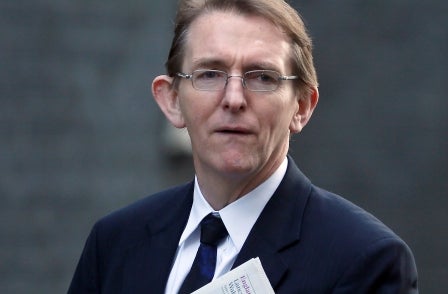
When an editor-in-chief and "chief content officer" is appointed over your head, editors start to feel nervous.
So it is not the greatest shock that four months after American digital guru Jason Seiken's appointment to the above roles, Daily Telegraph editor Tony Gallagher has gone – with his duties redistributed among existing staff.
The job he did no longer exists. Instead associate editor (news) Chris Evans now takes on responsibility for the print edition (Monday to Friday). And Sunday editor Ian MacGregor has the Saturday edition added to his portfolio.
Both have been appointed on an “acting” basis whatever that means (TMG has so far declined to elaborate).
The move takes resources away from print, which can be reinvested in digital. It is a story which is happening across the national press – and mirrors the new set-up at the Daily and Sunday Mirror.

Gallagher will be remembered as a brave editor who scored some memorable scoops. There was the Telegraph’s role in Plebgate, when it published the police log of the incident outside the gates of Downing Street in September 2012 which cost Tory chief whip Andrew Mitchell his job.
The scoop last year about the foster couple who had their children taken away by a council because they were members of the BNP was another big hit as was the undercover investigation into the way GCSE examiners were helping teachers coach children to “cheat” at paid-for seminars.
But under his watch the Telegraph was also rapped over the knuckles by the PCC for a fishing expedition which saw it go undercover to tape Business Secetary Vince Cable make unguarded remarks to two undercover journalists posing as constituents.
Not only did the story earn the paper a PCC rebuke but it led to allegations of corruption in the way it was handled.
The first Telegraph story of December 2010 focused on dischord in the Coalition and left out the fact the most newsworthy line in which Cable said he had “declared war on Rupert Murdoch”.
An insider at the Telegraph thought the line had been omitted for commercial motives and leaked the whole interview transcript to BBC business editor Robert Peston who made the comments public.
That led to Cable having responsibility for deciding on News Corp’s proposed take-over of BSkyB taken away from him.
It was alleged that the story was censored for commercial reasons; TMG was part of alliance of seven leading media businesses opposing the News Corp bid – so would have been happy that Murdoch-hating Cable was deciding it.
But TMG insisted it had planned to publish the further Cable comments in a second take on the story.
In questioning by during the Leveson Inquiry in 2012, former Telegraph editor Will Lewis – who in 2010 was general manager of News International – declined to reveal whether he was the source for the Peston story.
Gallagher embraced Twitter in recent years and has given the impression that he is well across his print and digital portfolio.
But it is possible that he wasn't quite enthusiastic enough for his new boss .
Seiken made his name in the US by revitalising a venerable old media brand in the shape of the Public Broadcasting Service. He turned it into a YouTube sensation and also brought about huge growth in mobile.
I suspect these will be the two areas he will target for growth at the Telegraph, as well as continuing to pursue further global scale. There is clearly great potential for the Telegraph to further become a global voice for right of centre news and views online in the way that The Guardian is doing so as a liberal one.
Speaking in 2012 Seiken talked about how he "made PBS cool again": "We wanted to have a start-up mojo…Be faster moving, take risks, be creative.
“In order to change an organisation you have to be both radical and incremental.
“Start not with a revolution but with an insurrection. We went radical by rewriting the PBS interactive mission statement to two words: Reinvent PBS. It doesn’t get much more radical than that.”
Seiken gave a hint about his plans for the Telegraph yesterday in the press release announcing Gallagher’s departure when he said: “We must reinvent the way we work and move beyond simply putting news and information online and be an essential part of the audience’s lives.”
This could mirror the “harvesters of content” approach being driven by David Montgomery’s Local World regional press group. Monty wants local newspapers to be conduits for all sorts of information – tide times, bus timetables, information from clubs and societies…you name it – and I suspect Seiken may be looking toward adopting this approach at a national level with Telegraph.co.uk.
Email pged@pressgazette.co.uk to point out mistakes, provide story tips or send in a letter for publication on our "Letters Page" blog
